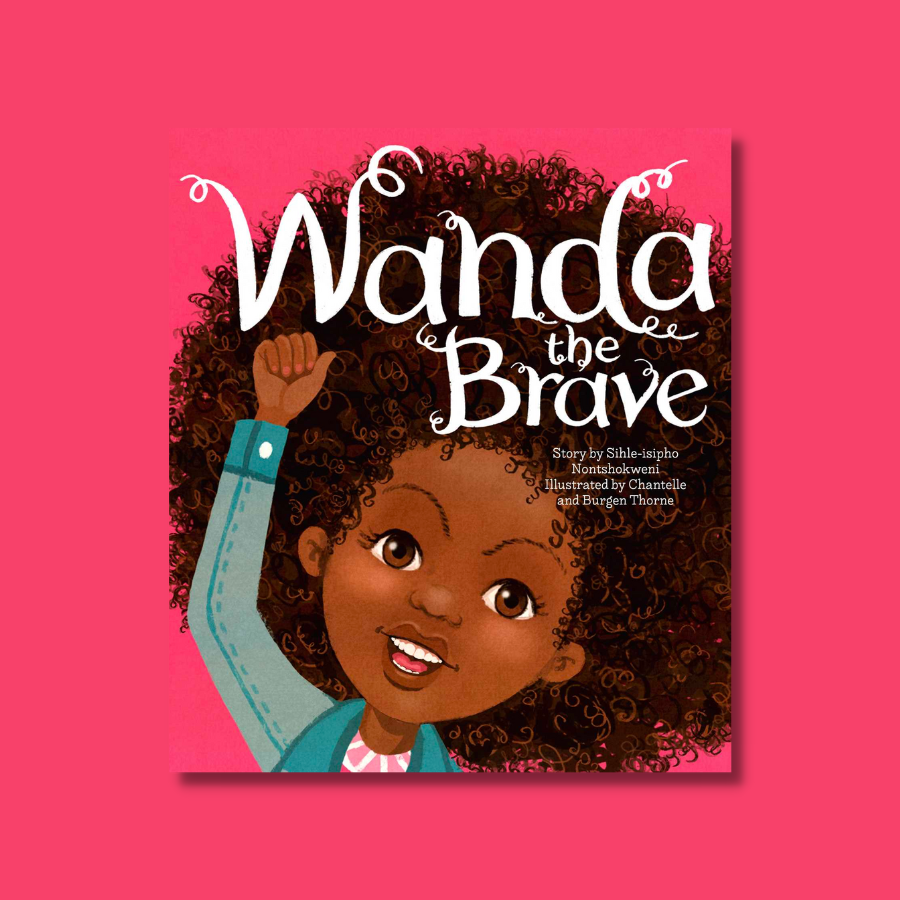In Wanda the Brave by Sihle-isipho Nontshokweni and Chantelle And Burgen Thorne, a young girl’s natural hair is challenged at a hair salon. And in just 32 pages this children’s book perfectly breaks down gender dynamics in beauty, microaggressions, prejudice, and the at times difficult relationship between black people and the natural state of our hair, indirectly highlighting how western beauty standards have negatively impacted POC and women of color especially.
There are some one-liners in this book that lifted my soul out of my body and tossed it across the room before merrily returning to its original plot line and point. And what we’re left with, after this beautifully articulated conversation, is an example of a young black girl standing her ground, standing up for herself, and celebrating her culture both in song and in praise of her hair.
It was this year, at 21 years old, that I fully stepped into my natural hair journey, and had I seen any snippet of this book in middle school, my life would have been a lot less painful. That being said, it was hard for me to read a children’s book released in a year where our black youth are still being subjected to teachers, barbers, and others telling them their naturals are unruly and need to be chemically suppressed even as these young folks are saying, “No! I love my hair!”
During my own natural hair journey, I cannot tell you how many times someone who looked just like me told me I should perm or relax my hair ’cause it would make me “prettier.” Some of these people were barbers and hairdressers whom I was paying to style and nurture my natural (hair).
The amount of times someone would see me with straight hair and say things like, “You look waaaay better this way!” The amount of times white teachers have suggested I try something “new” and questioned my mother about what she’s “going to do with my hair.” And yet, here we are in 2022 and the narrative has hardly changed.
But what this book taught me is that this is something I can fight for. My hair may also need someone to advocate for it, that someone being me. I don’t have to sit silently while people call me ugly for a beauty standard imposed on me and my culture by an oppressor.
It is exhausting processing the fact that there is another aspect of my natural livelihood as a person of color that will often need to be defended, but in reading this, I felt empowered. Me and my 3 millimeters of hair.

